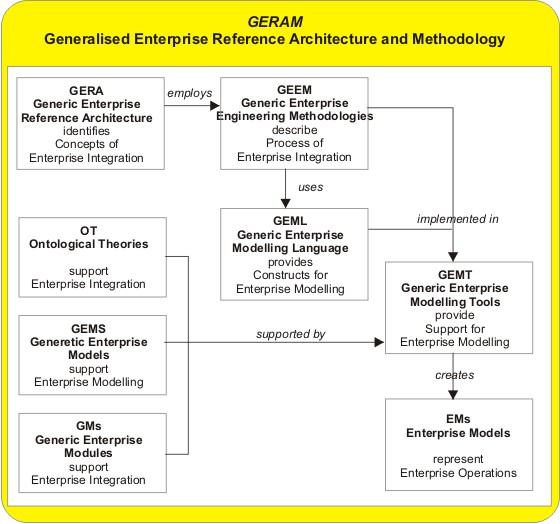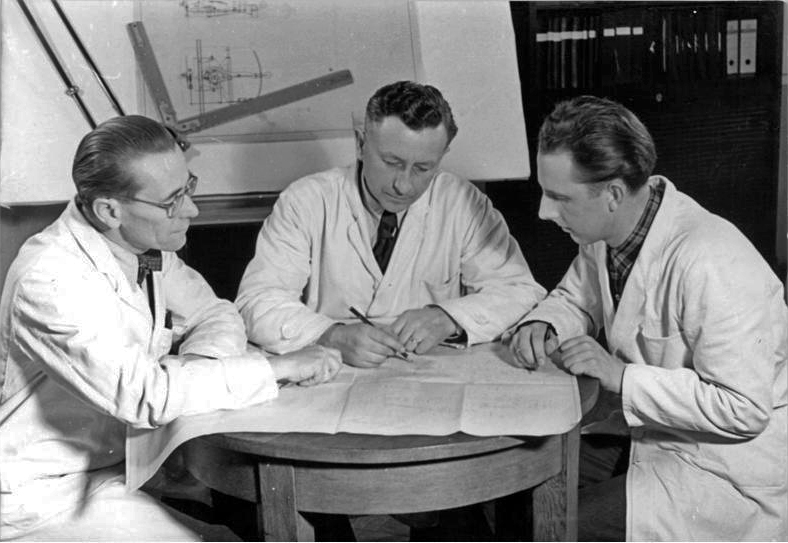|
Kosanke, Kurt
Kurt Kosanke (born ca. 1945) is a German engineer, retired IBM manager, director of the AMICE Consortium and consultant, known for his work in the field of enterprise engineering, Enterprise integration and CIMOSA.Arturo Molina, José M. Sánchez, Andrew Kusiak (1998) ''Handbook of Life Cycle Engineering: Concepts, Models and Technologies''. p. 234 Life and work Kosanke obtained his Engineering degree from the Physikalisch Technische Lehranstalt in Lübeck, Germany, nowadays the Private Berufsfachschule PTL Wedel. He started his career in research and development at IBM Deutschland in Böblingen working on the instrument development of optical printers and large-scale displays. In the 4 years at IBM USA he worked on production control, material logistics, and back in Germany focussed on manufacturing research and simulation. In 1984 Kosanke started participating in the ESPRIT AMICE project as IBM Deutschland representative, focussing on enterprise modelling and CIM Open Systems ... [...More Info...] [...Related Items...] OR: [Wikipedia] [Google] [Baidu] |
Engineer
Engineers, as practitioners of engineering, are professionals who invent, design, analyze, build and test machines, complex systems, structures, gadgets and materials to fulfill functional objectives and requirements while considering the limitations imposed by practicality, regulation, safety and cost. "Science is knowledge based on our observed facts and tested truths arranged in an orderly system that can be validated and communicated to other people. Engineering is the creative application of scientific principles used to plan, build, direct, guide, manage, or work on systems to maintain and improve our daily lives." The word ''engineer'' (Latin ) is derived from the Latin words ("to contrive, devise") and ("cleverness"). The foundational qualifications of an engineer typically include a four-year Bachelor of Engineering, bachelor's degree in an engineering discipline, or in some jurisdictions, a Master of Engineering, master's degree in an engineering discipline plus ... [...More Info...] [...Related Items...] OR: [Wikipedia] [Google] [Baidu] |
GERAM
Generalised Enterprise Reference Architecture and Methodology (GERAM) is a generalised enterprise architecture framework for enterprise integration and business process engineering. It identifies the set of components recommended for use in enterprise engineering. J.G. Nell, NIST (1997).An Overview of GERAM ICEIMT'97 International Conference on Enterprise Integration Modelling Technology 1997. Updated 30 January 1997 This framework was developed in the 1990s by a joint task force of both the International Federation of Automatic Control (IFAC) and the International Federation of Information Processing (IFIP) on enterprise architectures for enterprise integration. The development started with the evaluation of then-existing frameworks for enterprise application integration, which was developed into an overall definition of a so-called "generalised architecture".P. Bernus, and L. Nemes (1994). "A Framework to Define a Generic Enterprise Reference Architecture and Methodology". In: '' ... [...More Info...] [...Related Items...] OR: [Wikipedia] [Google] [Baidu] |
Systems Engineers
Systems engineering is an interdisciplinary field of engineering and engineering management that focuses on how to design, integrate, and manage complex systems over their life cycles. At its core, systems engineering utilizes systems thinking principles to organize this body of knowledge. The individual outcome of such efforts, an engineered system, can be defined as a combination of components that work in synergy to collectively perform a useful function. Issues such as requirements engineering, reliability, logistics, coordination of different teams, testing and evaluation, maintainability and many other disciplines necessary for successful system design, development, implementation, and ultimate decommission become more difficult when dealing with large or complex projects. Systems engineering deals with work-processes, optimization methods, and risk management tools in such projects. It overlaps technical and human-centered disciplines such as industrial engineering, pro ... [...More Info...] [...Related Items...] OR: [Wikipedia] [Google] [Baidu] |
Enterprise Modelling Experts
Enterprise (or the archaic spelling Enterprize) may refer to: Business and economics Brands and enterprises * Enterprise GP Holdings, an energy holding company * Enterprise plc, a UK civil engineering and maintenance company * Enterprise Products, a natural gas and crude oil pipeline company * Enterprise Records, a record label * Enterprise Rent-A-Car, a car rental Provider **Enterprise Holdings, the parent company General * Business, economic activity done by a businessperson * Big business, larger corporation commonly called "enterprise" in business jargon (excluding small and medium-sized businesses) * Company, a legal entity practicing a business activity * Enterprises in the Soviet Union, the analog of "company" in the former socialist state * Enterprise architecture, a strategic management discipline within an organization * Enterprise Capital Fund, a type of venture capital in the UK * Entrepreneurship, the practice of starting new organizations, particularly ... [...More Info...] [...Related Items...] OR: [Wikipedia] [Google] [Baidu] |
Engineers From Schleswig-Holstein
Engineers, as practitioners of engineering, are professionals who invent, design, analyze, build and test machines, complex systems, structures, gadgets and materials to fulfill functional objectives and requirements while considering the limitations imposed by practicality, regulation, safety and cost. "Science is knowledge based on our observed facts and tested truths arranged in an orderly system that can be validated and communicated to other people. Engineering is the creative application of scientific principles used to plan, build, direct, guide, manage, or work on systems to maintain and improve our daily lives." The word ''engineer'' (Latin ) is derived from the Latin words ("to contrive, devise") and ("cleverness"). The foundational qualifications of an engineer typically include a four-year bachelor's degree in an engineering discipline, or in some jurisdictions, a master's degree in an engineering discipline plus four to six years of peer-reviewed professional ... [...More Info...] [...Related Items...] OR: [Wikipedia] [Google] [Baidu] |
Living People
Related categories * :Year of birth missing (living people) / :Year of birth unknown * :Date of birth missing (living people) / :Date of birth unknown * :Place of birth missing (living people) / :Place of birth unknown * :Year of death missing / :Year of death unknown * :Date of death missing / :Date of death unknown * :Place of death missing / :Place of death unknown * :Missing middle or first names See also * :Dead people * :Template:L, which generates this category or death years, and birth year and sort keys. : {{DEFAULTSORT:Living people 21st-century people People by status ... [...More Info...] [...Related Items...] OR: [Wikipedia] [Google] [Baidu] |
François Vernadat
François B. Vernadat (born 1954) is a French and Canadian computer scientist, who has contributed to Enterprise Modelling, Integration and Networking over the last 25 years specialising in enterprise architectures, business process modelling, information systems design and analysis, systems integration and interoperability and systems analysis using Petri nets. Biography F. Vernadat studied from 1973 until 1981 at the University of Clermont, France, where received a master's degree in Electronics and Automatic Control and a PhD in 1981.Arturo Molina et al. (1998). ''Handbook of Life Cycle Engineering: Concepts, Models, and Technologies''. p.225. He has been a research officer first at the National Research Council of Canada (NRCC), Ottawa, from 1981 until 1988, and then at Institut National de Recherche en Informatique et Automatique (INRIA), France, until Sept. 1995. From 1995 until 2001 he has been a professor at the University of Metz in automatic control and industrial eng ... [...More Info...] [...Related Items...] OR: [Wikipedia] [Google] [Baidu] |
James G
James is a common English language surname and given name: *James (name), the typically masculine first name James * James (surname), various people with the last name James James or James City may also refer to: People * King James (other), various kings named James * Saint James (other) * James (musician) * James, brother of Jesus Places Canada * James Bay, a large body of water * James, Ontario United Kingdom * James College, a college of the University of York United States * James, Georgia, an unincorporated community * James, Iowa, an unincorporated community * James City, North Carolina * James City County, Virginia ** James City (Virginia Company) ** James City Shire * James City, Pennsylvania * St. James City, Florida Arts, entertainment, and media * ''James'' (2005 film), a Bollywood film * ''James'' (2008 film), an Irish short film * ''James'' (2022 film), an Indian Kannada-language film * James the Red Engine, a character in ''Tho ... [...More Info...] [...Related Items...] OR: [Wikipedia] [Google] [Baidu] |
Peter Bernus
Peter Bernus (born 1949) is a Hungarian Australian scientist and Associate Professor of Enterprise Architecture at the School of Information and Communication Technology, Griffith University, Brisbane, Australia.Peter Bernus Accessed 10 January 2009. Biography Peter Bernus graduated from Budapest Technical University as an engineer in electronic technology in 1976. He started working at the Mechanical Engineering Automation Division Computer and Automation Institute of the . In 1990 he became a researc ...[...More Info...] [...Related Items...] OR: [Wikipedia] [Google] [Baidu] |
International Federation For Information Processing
The International Federation for Information Processing (IFIP) is a global organisation for researchers and professionals working in the field of computing to conduct research, develop standards and promote information sharing. Established in 1960 under the auspices of UNESCO, IFIP is recognised by the United Nations and links some 50 national and international societies and academies of science with a total membership of over half a million professionals. IFIP is based in Laxenburg, Austria and is an international, non-governmental organisation that operates on a non-profit basis. Overview IFIP activities are coordinated by 13 Technical Committees (TCs) which are organised into more than 100 Working Groups (WGs), bringing together over 3,500 ICT professionals and researchers from around the world to conduct research, develop standards and promote information sharing. Each TC covers a particular aspect of computing and related disciplines, as detailed below. IFIP actively promo ... [...More Info...] [...Related Items...] OR: [Wikipedia] [Google] [Baidu] |
AMICE Consortium
CIMOSA, standing for "Computer Integrated Manufacturing Open System Architecture", is an enterprise modeling framework, which aims to support the enterprise integration of machines, computers and people. The framework is based on the system life cycle concept, and offers a modelling language, methodology and supporting technology to support these goals. It was developed in the 1990s by the AMICE Consortium, in an EU project. A non-profit organization CIMOSA Association was later established to keep ownership of the CIMOSA specification, to promote it and to support its further evolution.Arturo Molina, Jose Manuel Sanchez, Andrew Kusiak (1998). ''Handbook of Life Cycle Engineering: Concepts, Models, and Technologies''. pp. 187-188. Overview The original aim of CIMOSA (1992) was "to elaborate an open system architecture for CIM and to define a set of concepts and rules to facilitate the building of future CIM systems". [...More Info...] [...Related Items...] OR: [Wikipedia] [Google] [Baidu] |
Enterprise Modelling
Enterprise modelling is the abstract representation, description and definition of the structure, processes, information and resources of an identifiable business, government body, or other large organization. It deals with the process of understanding an organization and improving its performance through creation and analysis of enterprise models. This includes the modelling of the relevant business domain (usually relatively stable), business processes (usually more volatile), and uses of information technology within the business domain and its processes. Overview Enterprise modelling is the process of building models of whole or part of an enterprise with process models, data models, resource models and/or new ontologies etc. It is based on knowledge about the enterprise, previous models and/or reference models as well as domain ontologies using model representation languages. F.B. Vernadat (1997)Enterprise Modelling Languages ICEIMT'97 Enterprise Integration - Internat ... [...More Info...] [...Related Items...] OR: [Wikipedia] [Google] [Baidu] |



